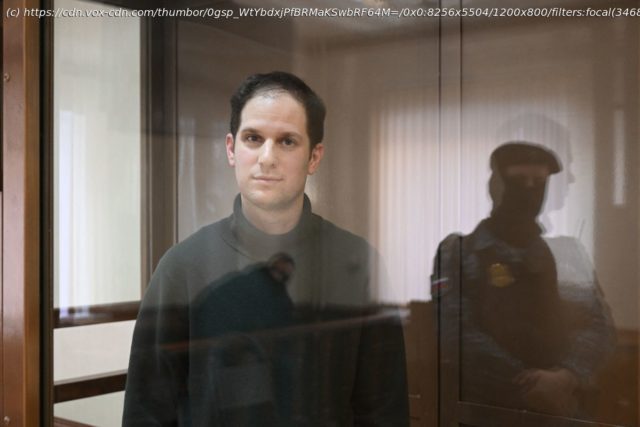Evan Gershkovich’s case isn’t just about press freedom. It’s about geopolitics. The American reporter was charged with espionage, and just had three months added to his jail time.
Evan Gershkovich, the Wall Street Journal reporter detained in Russia on charges of spying, just had three months added to his jail time — and he hasn’t even gone to trial yet.
It’s been a year since Gershkovich, who had covered the country for five years at that point, was arrested by Russian security forces. He was on assignment in Yekaterinburg, a city in the Ural Mountains nearly 900 miles east of the Journal’s Moscow bureau. And because of Russia’s opaque and autocratic justice system, the trial — when it comes — will likely be conducted in secret. If convicted, he could face up to 20 years in a Russian penal colony.
The US government says he is “wrongfully detained” — a designation the US applies to citizens detained overseas on what it considers to be unfounded charges and whose release it is actively working to secure.
While foreign reporters have been kicked out of the country since the start of Russia’s war in Ukraine, and many Russian reporters have been detained, forced to flee the country, or killed while President Vladimir Putin has been in power, Gershkovich’s case is somewhat unusual in that he’s an American reporter accused of espionage. He’s the first foreign reporter detained on espionage charges since the Cold War, when US News & World Report’s Nicholas Daniloff was arrested in 1986.
Daniloff, like Gershkovich, is the child of Russian immigrants; like Gershkovich, he was also not a spy, though he did come into Soviet intelligence that he handed over to the CIA. Gershkovich’s case is emblematic of a few trends in Russia right now — not just the destruction of press freedom there, but also the use of detainees as a bargaining chip between Russia and the US.Gershkovich’s time in Russia parallels increasing repression
Gershkovich’s parents fled the country during a wave of Jewish emigration from the Soviet Union in the 1970s and ’80s, according to the Journal. Though he grew up in the US, he spoke Russian at home, and his childhood was tinged with Russian superstitions and cultural specificities.






